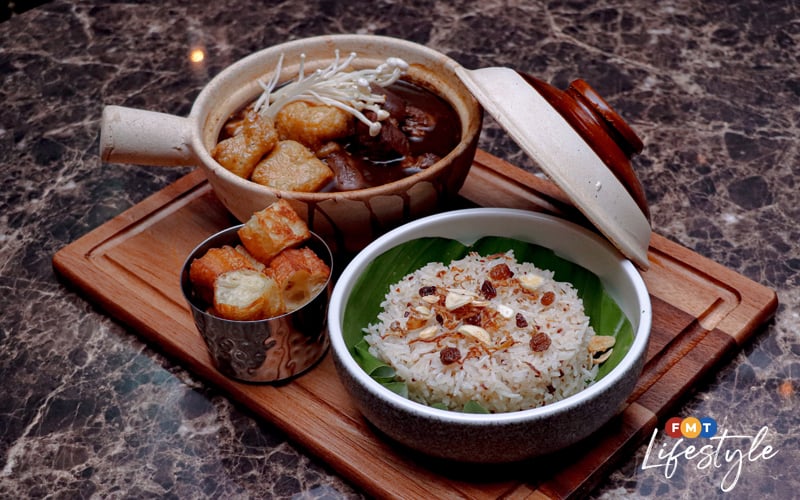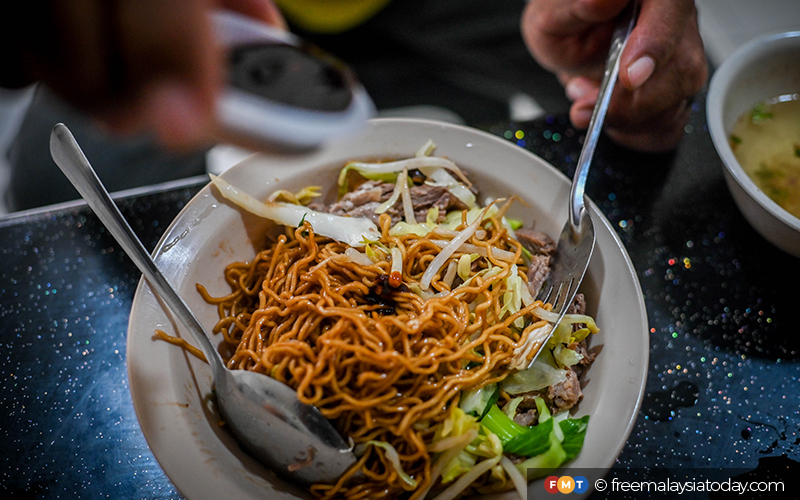- Joined
- Aug 20, 2022
- Messages
- 17,162
- Points
- 113
‘Bak kut teh’ declared as national heritage food
www.freemalaysiatoday.com
 Bak kut teh, a herbal pork rib soup, is a popular dish among Malaysian Chinese. It is often accompanied by crullers (you char koey) and sometimes with yam rice.
Bak kut teh, a herbal pork rib soup, is a popular dish among Malaysian Chinese. It is often accompanied by crullers (you char koey) and sometimes with yam rice.
PETALING JAYA: The herbal pork dish bak kut teh, which Malaysians hold to have originated in Port Klang or Klang, has been officially recognised as part of national heritage.
The dish was among 10 food items declared to be national heritage objects by heritage commissioner Muda Bahadin.
The announcement was published in the Government Gazette today, which also lists staple foods – burasak, kolok mee, and nasi ambeng; traditional kueh – dodol kukus tahi minyak, kuih genggang/kuih lapis, kuih karas and uthappam; an appetiser – jeruk tuhau; and the drink air katira as heritage objects.
Bak kut teh, a pork rib soup infused with aromatic herbs and spices, is a Chinese community favourite. Its origins are said to trace back to the Hokkien community in Port Klang, where it was taken as a nourishing tonic among labourers and coolies in the early 19th century.
However, its origins have come under dispute with competing claims from Singapore, which has also claimed Hainanese chicken rice as a uniquely Singaporean heritage.
Last year, a lively parliamentary debate ensued when Tebrau MP Jimmy Puah asked the government to consider recognising bak kut teh as a national heritage food.
The heritage department has in the past inducted other famous local foods into its food heritage list, with nasi lemak, laksa, chilli crab and Penang char kuey teow on the list.
 Kolok mee, also known as kolo mee, is a Sarawakian dish Malaysian dish of dry noodles tossed in a savoury meat and shallot mixture, topped off with fragrant fried onions.
Kolok mee, also known as kolo mee, is a Sarawakian dish Malaysian dish of dry noodles tossed in a savoury meat and shallot mixture, topped off with fragrant fried onions.
Kolok Mee, a popular noodle dish from Sarawak, features thin egg noodles tossed in soy sauce and spices, often served with slices of tender meat.
Burasak is a traditional Malay dessert made popular in Johor. It consists of pulut rice cooked with coconut milk and palm sugar, wrapped in banana leaves and steamed until tender.
Nasi ambeng, a communal Javanese rice dish, consists of fried chicken, vegetables, sambal, and traditional condiments served on a large platter. It was declared as Selangor’s heritage food in 2022.
Dodol kukus tahi minyak, a steamed sticky sweet delicacy, is a Pahang traditional dish.
Kuih genggang or kuih lapis is a sweet delicary of Peranakan influence comprising colorful layers of rice flour.
Kuih karas is is a crispy traditional snack said to have originated from Kedah and Borneo.
Uthappam is a savoury South Indian crepe. Jeruk tuhau is pickled wild ginger while air katira is a refreshing drink made from katira gum.
www.freemalaysiatoday.com

PETALING JAYA: The herbal pork dish bak kut teh, which Malaysians hold to have originated in Port Klang or Klang, has been officially recognised as part of national heritage.
The dish was among 10 food items declared to be national heritage objects by heritage commissioner Muda Bahadin.
The announcement was published in the Government Gazette today, which also lists staple foods – burasak, kolok mee, and nasi ambeng; traditional kueh – dodol kukus tahi minyak, kuih genggang/kuih lapis, kuih karas and uthappam; an appetiser – jeruk tuhau; and the drink air katira as heritage objects.
Bak kut teh, a pork rib soup infused with aromatic herbs and spices, is a Chinese community favourite. Its origins are said to trace back to the Hokkien community in Port Klang, where it was taken as a nourishing tonic among labourers and coolies in the early 19th century.
However, its origins have come under dispute with competing claims from Singapore, which has also claimed Hainanese chicken rice as a uniquely Singaporean heritage.
Last year, a lively parliamentary debate ensued when Tebrau MP Jimmy Puah asked the government to consider recognising bak kut teh as a national heritage food.
The heritage department has in the past inducted other famous local foods into its food heritage list, with nasi lemak, laksa, chilli crab and Penang char kuey teow on the list.

Kolok Mee, a popular noodle dish from Sarawak, features thin egg noodles tossed in soy sauce and spices, often served with slices of tender meat.
Burasak is a traditional Malay dessert made popular in Johor. It consists of pulut rice cooked with coconut milk and palm sugar, wrapped in banana leaves and steamed until tender.
Nasi ambeng, a communal Javanese rice dish, consists of fried chicken, vegetables, sambal, and traditional condiments served on a large platter. It was declared as Selangor’s heritage food in 2022.
Dodol kukus tahi minyak, a steamed sticky sweet delicacy, is a Pahang traditional dish.
Kuih genggang or kuih lapis is a sweet delicary of Peranakan influence comprising colorful layers of rice flour.
Kuih karas is is a crispy traditional snack said to have originated from Kedah and Borneo.
Uthappam is a savoury South Indian crepe. Jeruk tuhau is pickled wild ginger while air katira is a refreshing drink made from katira gum.


